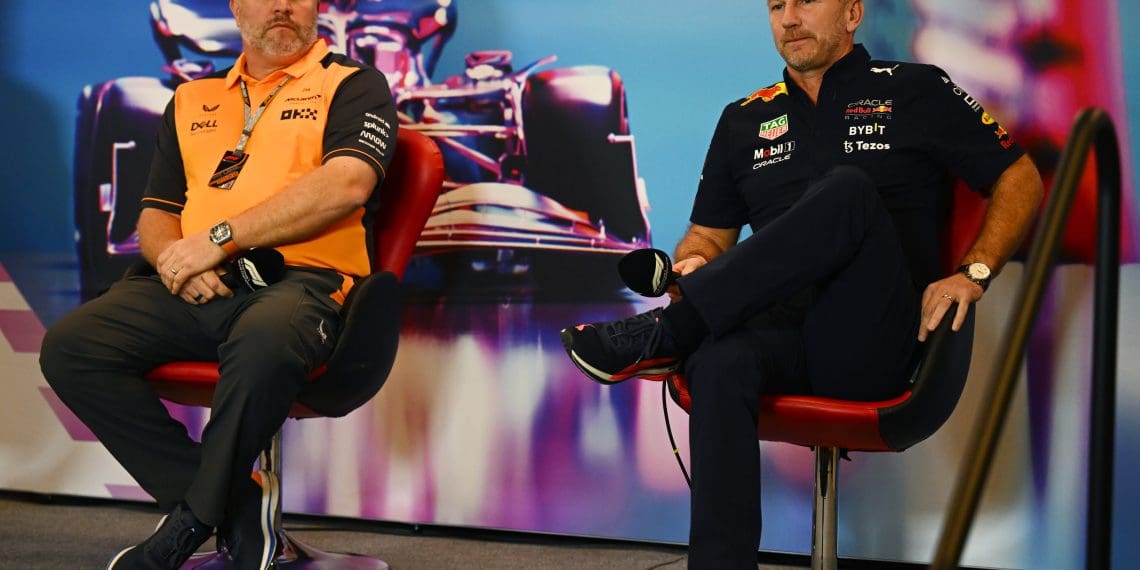McLaren CEO Zak Brown has made a bold call for Formula 1 to employ full-time race stewards, arguing that the current system—relying on part-time, unpaid officials—is fundamentally flawed.
His argument? F1 is a multi-billion-dollar sport, and inconsistent officiating is hurting its credibility. With the FIA recently launching a new department aimed at training officials, Brown believes that teams should contribute financially to fund a dedicated group of professional stewards.
The Problem: Inconsistency and Controversy
Race officiating in Formula 1 has been under constant scrutiny in recent years. From track limits confusion to inconsistent penalties, many teams and drivers feel the FIA’s decision-making lacks clarity and consistency.
Some of the biggest criticisms from 2024 included:
- The Qatar track limits fiasco, where multiple drivers were penalized post-race, leading to a reshuffling of results.
- Fernando Alonso’s Austin time penalty, where his car was ruled “unsafe” mid-race after a collision—despite similar incidents in the past going unpunished.
- Multiple drivers, including George Russell, questioning the fairness of FIA rulings throughout the season.
Brown believes that having full-time professional stewards would help eliminate ambiguity, ensure better decision-making, and remove bias from race-to-race rulings.
“To have part-time, unpaid stewards in a multi-billion-dollar sport where everything is on the line to make the right call… I don’t think we are set up for success.” – Zak Brown
The Solution: Full-Time Stewards, Funded by F1 Teams?
Brown not only advocates for professional stewards but also volunteered McLaren—and other teams—to financially contribute to making it happen.
“As far as paying for the stewards, this will probably be unpopular amongst my fellow teams, but I’m happy if McLaren and all the racing teams contribute.”
This could be a game-changer. Currently, the FIA operates under limited resources when it comes to stewarding, leading to reliance on part-time volunteers who rotate every race. A dedicated full-time panel would ensure a consistent decision-making process across the entire season.
Would teams be willing to spend their own money to fund this? That’s another question entirely.
FIA’s Perspective: Are Stewards Really Inconsistent?
Despite the backlash, Nikolas Tombazis, the FIA’s single-seater technical director, disagrees with Brown’s concerns.
- He has defended the current stewarding system, insisting it is “pretty consistent” and that complaints are exaggerated.
- The FIA recently removed multiple key stewards, including Johnny Herbert, and plans to train new officials through a dedicated development program.
- However, this approach still relies on part-time stewards, rather than the full-time professionals that Brown is pushing for.
With inconsistencies still fresh in the minds of fans and teams, the FIA will likely face more pressure in 2025 to prove its officiating standards are improving.
Should F1 Teams Step In?
While Brown’s proposal is logical, it does raise key questions:
✅ Would full-time stewards actually solve the problem?
- Having a dedicated panel could reduce inconsistency by ensuring the same officials oversee every race.
- However, F1’s complex rulebook would still need streamlining to avoid overly technical decisions that frustrate teams and fans.
✅ Will other teams agree to fund stewarding?
- Brown claims that paying for full-time stewards “won’t break the bank” if split across teams, F1, and the FIA.
- However, smaller teams may not be thrilled about footing the bill.
✅ Would the FIA even allow this?
- The FIA controls all sporting regulations in F1 and may not want teams influencing officiating decisions—even if they help pay for it.
- The risk of conflicts of interest could be a major sticking point.
Final Verdict: A Necessary Change?
Zak Brown is right about one thing—Formula 1 needs more consistent officiating.
Whether or not full-time stewards are the answer remains to be seen, but there’s no denying that F1’s decision-making process has been a hot mess in recent seasons. If teams like McLaren are willing to pay for a better system, it’s at least worth considering.
But will the FIA listen? Or will it continue to insist that the system is already working fine?
As F1 heads into the 2025 season, this debate is far from over.










